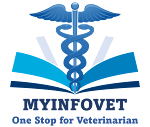Job alert: Animal Production Officer (Animal Nutrition)
Animal Production Officer (Animal Nutrition)
Job Posting
: 09/May/2022
Closure Date
: 31/May/2022, 5:59:00 AM
Organizational Unit: NSA
Job Type
: Staff position
Type of Requisition: Professional
Grade Level: P-4
Primary Location
: Italy-Rome
Duration: Fixed-term: 2 years with possibility of extension
Post Number: 0415359
CCOG Code: N/A
• FAO is committed to achieving workforce diversity in terms of gender, nationality, background and culture
• Qualified female applicants, qualified nationals of non-and under-represented Members and persons with disabilities are encouraged to apply
• Everyone who works for FAO is required to adhere to the highest standards of integrity and professional conduct, and to uphold FAO's values
• FAO, as a Specialized Agency of the United Nations, has a zero-tolerance policy for conduct that is incompatible with its status, objectives and mandate, including sexual exploitation and abuse, sexual harassment, abuse of authority and discrimination
• All selected candidates will undergo rigorous reference and background checks
• All applications will be treated with the strictest confidentiality
• FAO staff are subject to the authority of the Director-General, who may assign them to any of the activities or offices of the Organization.
The Food and Agriculture Organization of the United Nations (FAO) contributes to the achievement of the 2030 Agenda through FAO Strategic Framework by supporting the transformation to MORE efficient, inclusive, resilient and sustainable agrifood systems, for better production, better nutrition, a better environment, and a better life, leaving no one behind.
Organizational Setting
The Animal Production and Health Division (NSA) promotes and facilitates the sustainable development of the livestock sector, integrating scientific and technical expertise and policy advice. It hosts technical networks in the areas of animal health, genetics, feed and animal husbandry and provides analysis, policy dialogue (including intergovernmental bodies) and technical assistance. It also supports emergency responses, mostly in animal health.
The position is located in the Animal Production and Genetics Branch (NSAG) of the Animal Production and Health Division (NSA) at FAO headquarters in Rome, Italy.
Reporting Lines
The Animal Production Officer (Animal Nutrition) reports to the Senior Animal Production Officer (Genetic Resources and Animal Production) and is under the overall supervision of the Director NSA.
Technical Focus
Improving animal feeding systems and strategies for increased economic and environmental efficiency and higher equity in the livestock sector, focusing on integration and bio-economy, including through methods and tools, information and data, as well as innovations and technologies.
Key Results
Comprehensive technical and policy expertise to support the planning, development and implementation of divisional programmes, projects, products and services in accordance with the FAO Strategic Framework.
Key Functions
• Plans and leads components of multi-disciplinary teams, leads and/or participates in Organization-wide, cross-divisional committees, project teams, and working groups, and/or provides specialized expertise in technical networks and/or international technical policy and standard setting bodies.
• Ensures the integration of gender equality and women's empowerment in FAO's work, including the disaggregation of data by sex and age where appropriate.
• Develops technical, analytical, monitoring and reporting frameworks, and related methodologies, tools, systems and databases, etc. to support the planning, implementation/delivery and monitoring of programmes of work, projects, products and/or services.
• Designs and conducts research, data collection, validation, analysis and/or reporting activities from a gender perspective to support the development of technical standards, international instruments, innovative approaches and strategies, new tools, technologies, technical reports/publications and/or policy proposals as well as the provision of technical/policy/specialist/advice and expertise.
• Responds to country requests for technical and policy assistance, provides technical advice, assistance and solutions to Decentralized Offices and provides technical backstopping to field projects.
• Collaborates in, provides technical backstopping to, and ensures the quality/effectiveness of, capacity development and knowledge sharing activities within Member countries such as policy support, organizational development and individual learning events including preparation of related information, learning materials, and on-line tools.
• Promotes international cooperation/advocates best practices, supports increased policy dialogue and provides technical expertise at international/intergovernmental meetings.
• Participates in resource mobilization activities in accordance with the FAO Corporate Strategy.
Specific Functions
• Leads NSAG's work on animal feeding systems and feeding strategies covering all production systems and species, in particular to:
o Enhance natural resource use efficiency in the livestock sector and extend feed resource base by converting food losses and wastes into animal feed, valorization of agro-industrial by-products and exploring novel alternative feeds including insects based feed products;
o Strengthen quality control systems in feed analysis laboratories to estimate chemical composition and nutritive value of feed;
o Develop databases, guidelines, tools and reports related to animal feed and feeding systems.
• Coordinates with other technical units within NSA, other technical divisions and field offices to:
o Develop and promote solutions to improve animal feeding, especially in resource poor environments, to improve production sustainability and efficiency, as well as resilience of production systems and livelihoods of livestock producers;
o Develop animal nutrition and feed-based solutions to enhance livestock productivity, while decreasing its environmental impact;
o Integrate animal nutrition into the broader context of food and nutrition security, biodiversity, resource use and environmental pollution, climate change mitigation and adaptation, including through low-emission feed sourcing, improved grazing management for carbon sequestration and improved feed quality for reduced enteric methane emissions;
o Develop synergies with bioenergies and biotechnologies.
• Supports Member Nations in conducting national feed inventories, feed balances and feed assessments, including with the use of improved methodologies and tools such as the NSAG Feed Balance Sheet for pastoralist systems, and in developing the capacity of small-scale producers on feed and feeding systems.
• Identifies and formulates projects aiming at improving animal feeding and management of rangeland and grassland.


